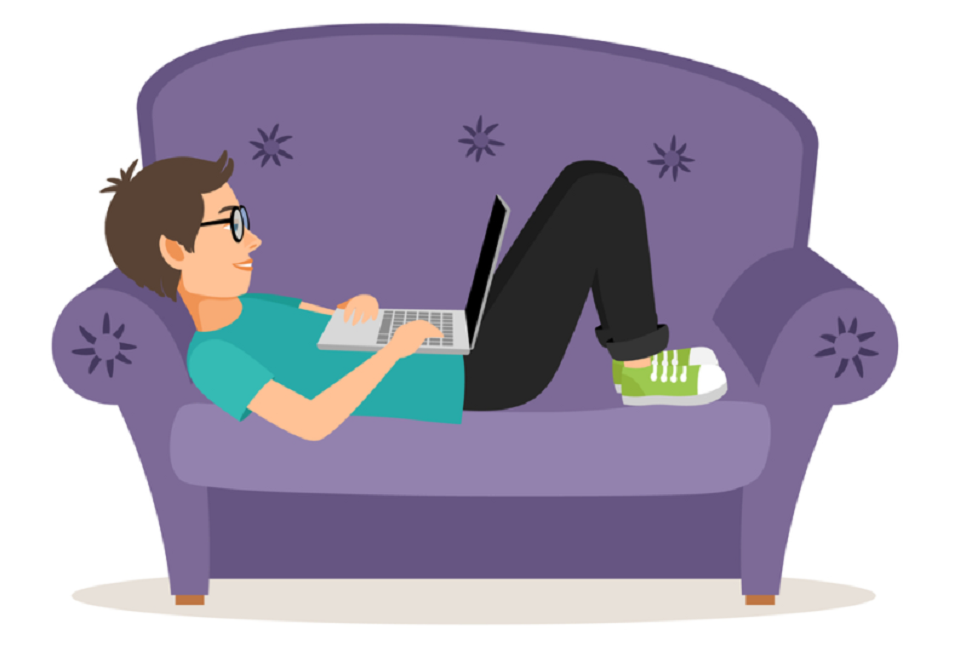
Treat your home like a real office
Although the circumstances that have you working from home are somewhat frightening, you still run the risk of using this opportunity to take it a bit easier because the location you are currently working in is usually the place you relax.
Instead of remaining in those cozy pyjamas and comfy slippers, professor Larson suggests you maintain the same routine you would as if you were physically going to work. “Take a shower and get dressed. Treat it like a real job,” says Larson.
Your surroundings play an equally important part in shaping your mentality for working from a home office. Do as much as you can to create an office space solely for working “Not having a well-equipped home office space when [people] begin remote working can cause a temporary decrease in productivity,” Sutton explains.
Instead of lying on your bed with your laptop resting in your lap or relaxing on your couch with your laptop on the coffee table, try create a designated work area. Even if it’s just a nightstand placed in a corner of the room with an upright chair in front of it, maintaining a sense of your work environment by sitting at a ‘desk’ will increase motivation and therefore productivity.
This also serves to create a boundary between you and the others who you share your home with, indicating that you are clearly ‘at work’. Kristen Shockley, an associate professor of psychology at the University of Georgia says “Create boundaries within your home that your family members understand: ‘When the door is closed, pretend I’m not there,’”
Boundaries aside, setting up an office desk at home comes with other benefits as a 2019 study, conducted by FlexJobs, of 7000 workers found that 65% said they’re more productive working from home, citing benefits like fewer interruptions from colleagues, minimal office politics and reduced stress from commuting.
Maintaining workplace routines, like coffees breaks and a lunch hour, is also a way to keep you in the right working mindset. Yet it is also important to bookend your working day according to a Buffer survey. The most cited complaint about working from home was the inability to unplug at the end of your home office day.
When you usually break up your working day with commuting back and forth to work, it can be hard to transition to having a definitive start and end to your day. Professor Shockley agrees, suggesting “psychological segues” that can help put you in the right mindset: like a 20-minute coffee in the morning and then exercise right after work to open and close the day.
She continues, “Even if childcare isn’t an issue, it’s still easy when you’re home [to think]: ‘I have laundry to do, let me do it real quick,’” she says. “You have to [put] yourself in a frame of mind that you’re really working.”

























